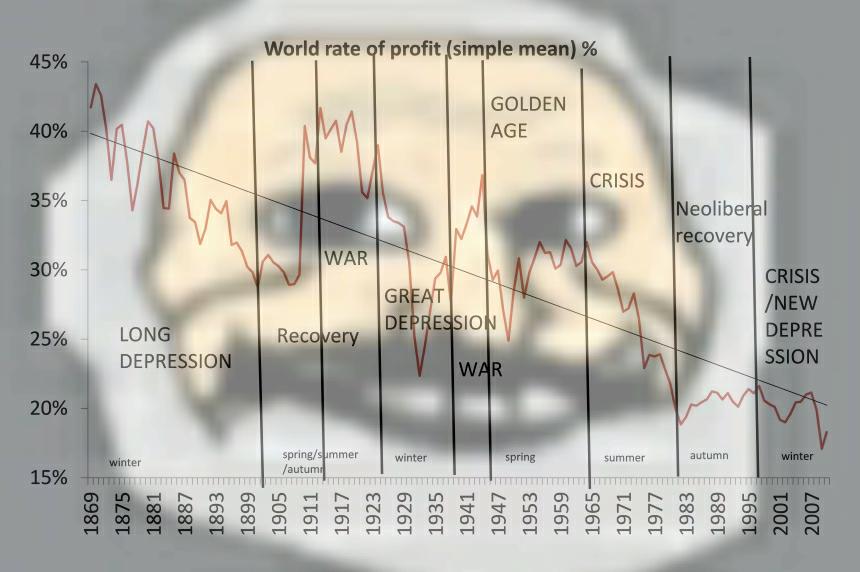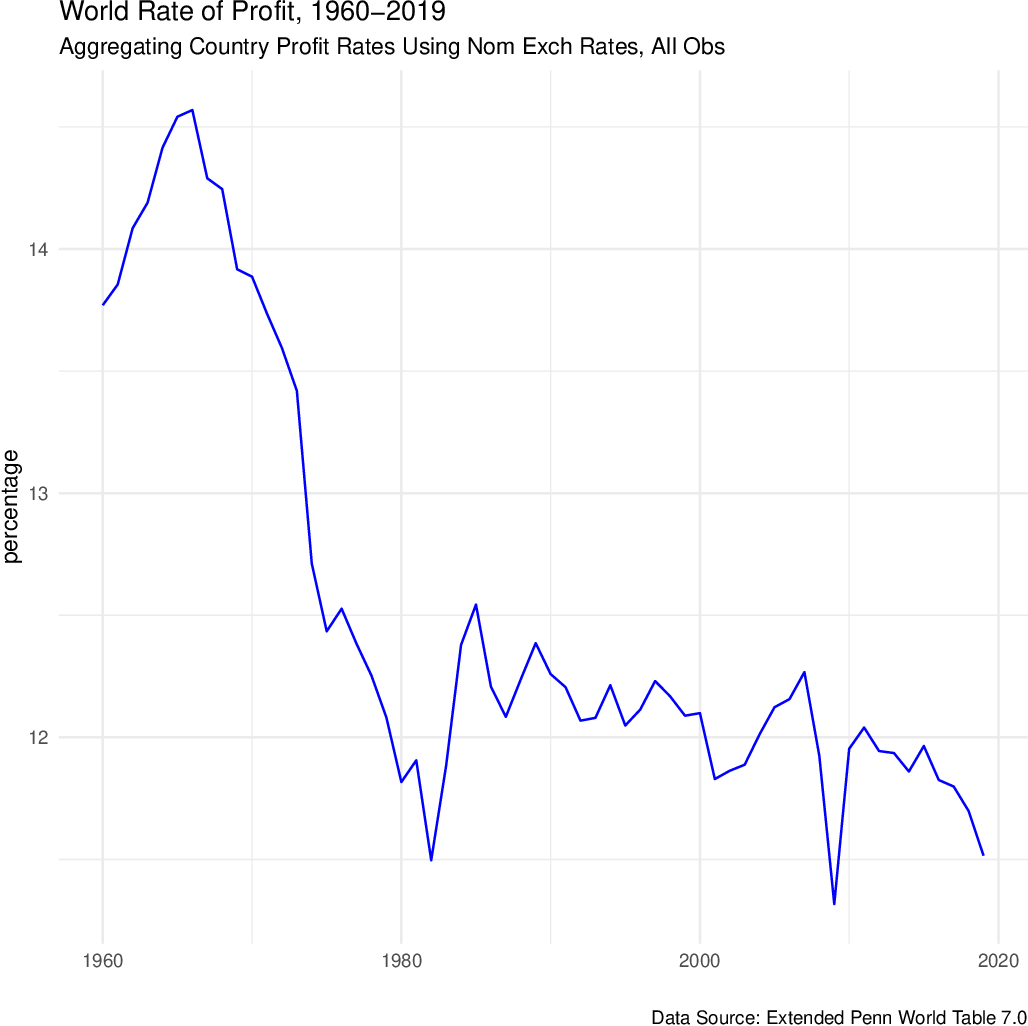Here keep it if u don't have it
This comes from this data: https://www.rug.nl/ggdc/productivity/pwt/?lang=en
This specific chart comes from page 29 of this, which uses the above data: https://scholarworks.umass.edu/server/api/core/bitstreams/69ff54a4-6554-48b9-9b5b-58008cb25725/content
Completely fine as long as the axes are clearly marked and consistently spaced
True, but a measure of uncertainty would be nice to see as well. Anything anti-capitalist will be held to a higher standard so we should be in the habit of including errorbars, for example.
I would suggest that anyone interested in this subject read "The failure of capitalist production", by Andrew Kliman. The author delves into the tendency for the rate of profit to fall in marxist terms, looking especially, but not exclusively, at the 2008 crisis.
I mention this because he uses an analogy that made me understand the tendency for the rate of profit to fall more accurately: like gravity, the rate of profit tends to fall, but that does not mean that all objects on Earth will eventually reach their lowest point with no means of going back up. It is merely a tendency, which capitalism is always fighting back against, and not a deterministic prediction about an absolute low in the rate of profits in the future.
Good meme tho
Well, I certainly don't benefit from the machinations of capitalism, but, from what I gather, capitalists benefit by enjoying the periods in which profits are high and by destroying capital and consolidating monopolies when they are low. So maybe that's an incentive to continue being the ruling class, I suppose
lol I get it now, I'd just forgotten what I commented
No worries here












